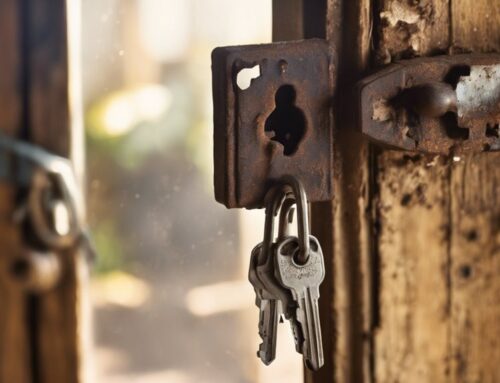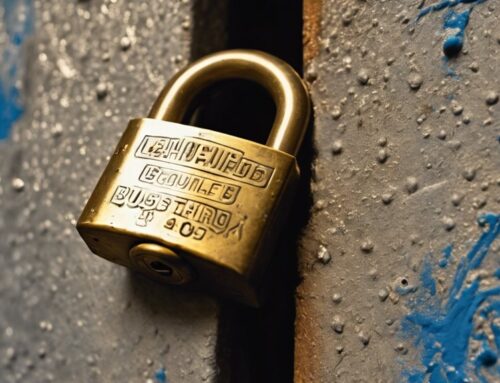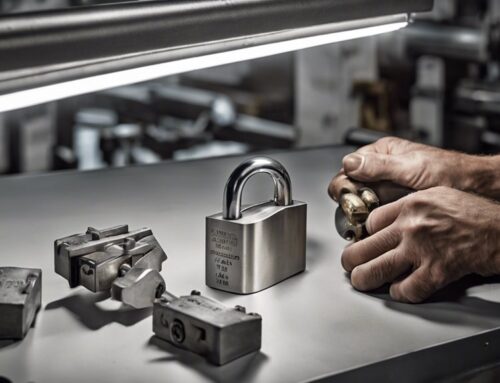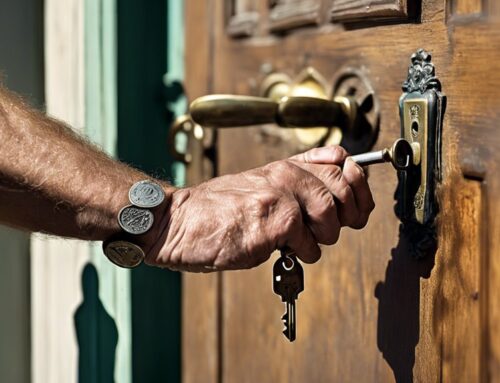When you think about key duplication laws in Ohio, it's vital to recognize how these regulations safeguard your privacy and security. You might not realize the extent to which unauthorized key duplication can lead to vulnerabilities, especially in settings like educational institutions. Understanding the legal framework and compliance requirements is important for maintaining control over access to your property. Yet, many still overlook the real implications of these laws. What do you actually need to know to guarantee that your keys remain secure?
Key Takeaways
- Key duplication in Ohio is strictly regulated, particularly in educational institutions, to maintain security and prevent unauthorized access.
- "Do Not Duplicate" keys lack legal enforceability, highlighting the need for proper key management to enhance security.
- Violating key duplication laws can result in fines, disciplinary actions, and significant costs for re-keying and lost keys.
- Compliance with Ohio Revised Code Section 3345.13 is essential for institutions to ensure accountability and protection of personal information.
- Implementing best practices for key protection, such as patented key systems, can significantly improve security and prevent unauthorized duplication.
Overview of Key Duplication

When you need a spare key, understanding the key duplication process can be essential. Key duplication primarily involves creating a new key from an existing one. The most common method is key cutting, where a machine uses a vise to hold the original key and a blank key. The machine then cuts the blank, using the original key as a template. After cutting, the new key undergoes deburring to remove sharp edges, typically done with a wire brush or bench grinder.
You've got several methods to choose from when duplicating keys. The machine method stands out, employing a key duplicator with a vise and blade. The punch method requires measuring key notch depths, then using a numeric slider and lever for precision cuts. Impressioning involves taking a soft metal impression of the original key's teeth, while hand key cutting allows a skilled locksmith to manually file a blank key—ideal for damaged or complex keys.
However, be mindful of security considerations. While "Do Not Duplicate" keys discourage unauthorized duplication, they're not legally binding, leading to security risks. Patented keys provide greater protection, controlling the distribution of key blanks and making unauthorized duplication illegal. Additionally, advancements in key duplication technology continue to enhance the efficiency of this process. Furthermore, understanding the lock picking laws in Ohio is crucial for locksmiths to ensure compliance while providing key duplication services. Moreover, using digital locks can add an extra layer of security to your property.
In many cases, key control policies outline liabilities and discourage sharing or duplication, emphasizing the importance of having spare keys. Ultimately, key duplication serves as a practical solution for maintaining access without the hassle of changing locks.
Legal Framework in Ohio

In Ohio, the legality of key duplication is tightly regulated, especially for state-supported institutions. You need to understand that violating these laws can result in fines and other penalties. Additionally, if you're in a lease agreement, be aware that the terms may also dictate specific guidelines for key access and duplication. Moreover, institutions have established key management procedures to ensure accountability and security regarding key distribution and returns. It is crucial to recognize that changing locks after an eviction without following proper legal procedures could lead to significant legal repercussions. Understanding consumer protection laws is essential for complying with these regulations and maintaining trust in key management practices.
Key Duplication Legality
Key duplication laws in Ohio emphasize strict regulations, particularly within educational institutions. These laws prohibit anyone from knowingly duplicating keys for state-supported colleges and universities without adhering to established guidelines. You could face fines ranging from fifty to one hundred-fifty dollars for violating this regulation.
All keys, including master and submaster versions, are closely controlled and issued exclusively through authorized channels. The institutions maintain detailed protocols for key pick-up, return, and reporting lost or stolen keys to safeguard security. You must return keys to the person who issued them and provide photo identification for pick-up. In Ohio, adherence to lock standards highlights the importance of maintaining a secure environment on campuses. Duplicating apartment keys, even if the lease agreements have specific restrictions, can lead to misunderstandings about key duplication legality. Additionally, landlords are obligated to notify tenants about lock changes to ensure transparency and compliance with the law.
Unauthorized duplication not only risks security but may also necessitate costly procedures like re-coring or re-keying. Access control measures aim to balance security with necessary campus access. Automated systems keep track of key authorizations, and background checks may be required for certain access.
Compliance is enforced through audits, ensuring adherence to regulations. Breaching these rules can lead to disciplinary actions and financial repercussions. Ultimately, understanding these legal frameworks can help you navigate the complexities of key duplication laws while safeguarding the interests of educational institutions in Ohio.
Lease Agreement Considerations
Understanding lease agreement considerations in Ohio is vital for both landlords and tenants, as it establishes the framework for their relationship. A lease must include key components like contact information, property description, rental terms, payment details, and information about the security deposit.
You'll want clarity in lease duration and renewal options to avoid confusion later. Legally, both parties need the capacity to enter a contract, and compliance with fair housing laws is mandatory. Your agreement must be in writing, signed by both parties, and include necessary disclosures, such as lead-based paint hazards for older properties. Furthermore, ensuring the lease addresses high-security lock installations can enhance the safety measures of the rental property.
It's important to understand your responsibilities. Landlords must maintain habitable conditions and guarantee utilities are available, while tenants should keep spaces clean and report significant issues promptly.
Both parties should avoid actions that could damage the property beyond normal wear and tear. Special provisions can tailor your lease to specific needs. If you're considering subleasing or have pets, make sure those terms are explicitly covered. Additionally, understanding the role of locksmiths in real estate can be crucial during lease transitions and property changes.
Knowing these considerations can help protect your rights and foster a harmonious rental experience.
Institutional Policies
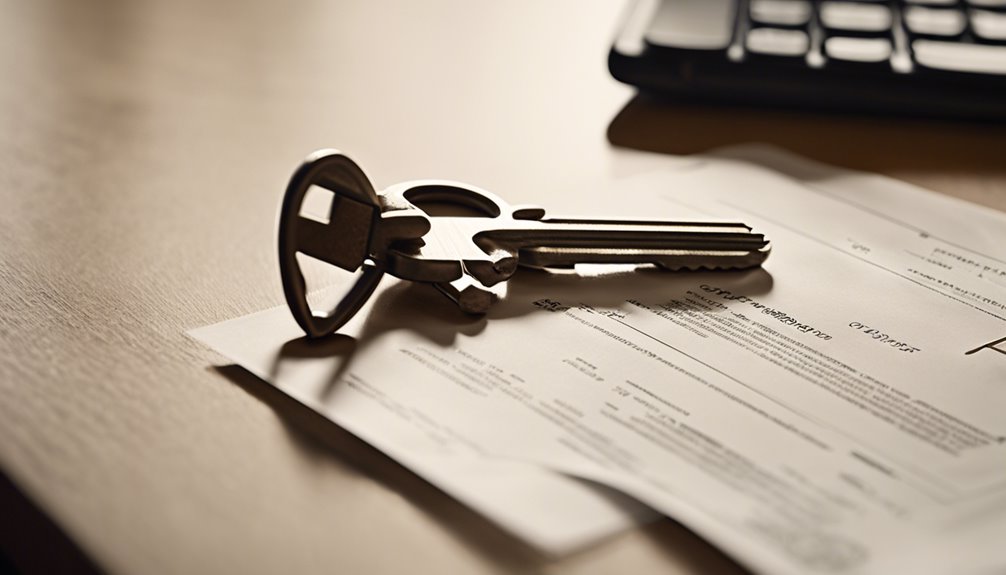
While traversing the complexities of institutional key policies, it's vital to recognize the structured framework in place that governs key request and distribution processes.
First, you'll need to complete an electronic key request form, ensuring it includes your name, T-number, status, phone number, and department. Authorization from the Building Representative is a must; without it, your request is invalid. Once approved, Facilities Operations will notify you via email when your keys are ready for pickup.
When you go to collect your keys, remember to bring a college-issued ID. By signing the Key Request Form, you accept responsibility for the key. It's important to return keys immediately upon the termination of your employment. A reliable source of support for lock system assistance is crucial for maintaining security.
Significantly, faculty and staff must also surrender current keys before receiving new ones for different spaces. Failing to return keys can lead to monetary charges or disciplinary actions.
If keys go missing, you must report the loss to Campus Safety. A security report and new key slip are required for replacements. As a key recipient, you hold direct accountability for its return.
For students, deposits are charged, but they're refundable when keys are returned on time. Additionally, state-supported colleges enforce key duplication regulations, ensuring compliance with broader state laws. Understanding the licensing requirements for locksmiths helps reinforce the importance of securing key management processes.
Regular updates to these policies aim to enhance security and safeguard the well-being of the college community.
Lease Agreement Implications

Lease agreements in Ohio carry significant implications for both landlords and tenants, as they establish clear legal expectations and responsibilities. Understanding these agreements is essential for maintaining a cooperative relationship and protecting your rights.
- Legal Capacity: Verify both parties can legally enter into a contract.
- Written Agreement: A written lease is a must; it provides clarity and security.
- Disclosure Requirements: Landlords need to inform you about significant hazards and property details.
Your rights as a tenant are safeguarded by various laws, but it's imperative to uphold your responsibilities. Ohio requires landlords to keep properties habitable, so you'll have a safe environment.
You, in turn, must maintain cleanliness and report significant issues as they arise.
When it comes to financials, be aware of security deposit practices. Ohio law allows landlords to request a deposit without a set limit, but they must return it within 30 days of lease termination, providing an itemized list of any deductions.
Termination and eviction processes must also align with legal standards. Both you and your landlord must follow the terms laid out in the lease, including proper notice for terminating a month-to-month agreement.
Stay informed about your lease agreements and know your rights. This knowledge empowers you to advocate for your needs while respecting legal obligations, fostering a more harmonious living arrangement.
Access Control Systems
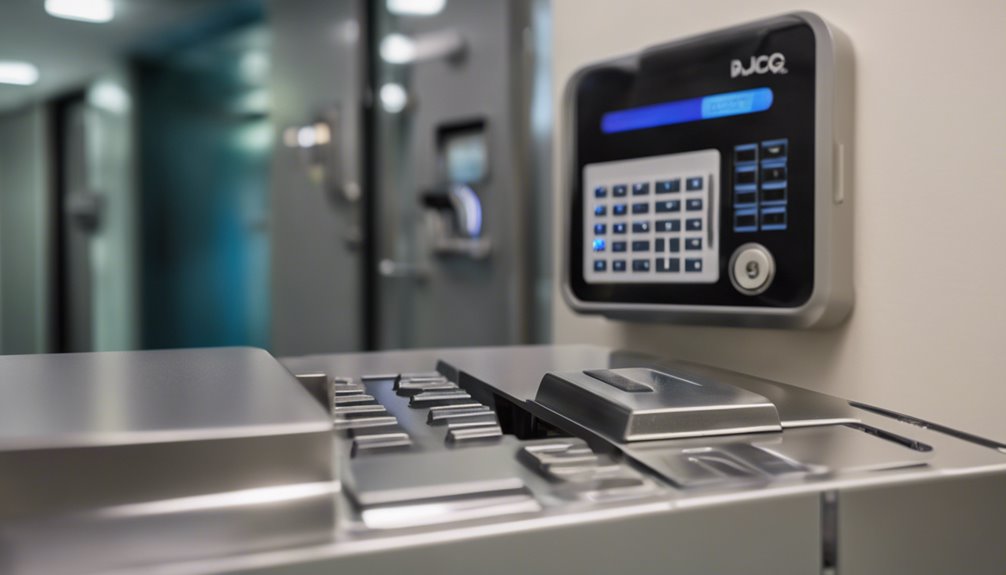
As security concerns grow, access control systems have become essential for protecting facilities and managing entry efficiently. These systems provide a range of services, including installation, maintenance, and repair, tailored to meet your specific business needs. Providers like Avigilon Alta and The Flying Locksmiths in Columbus, Ohio, offer innovative solutions featuring mobile phone access, RFID systems, key cards, and even biometric technology.
Here's a quick overview of some key features that enhance security and user experience:
| Feature | Description | Benefit |
|---|---|---|
| Mobile Access | Wave to Open technology for smartphones | Eliminates need for physical keys |
| Cloud-Based | Remote management through cloud-hosted software | Effortless scalability |
| Multi-Site Support | Integration with over 40 tools and apps | Streamlined operations across sites |
The integration of access control systems with video surveillance strengthens facility security while maintaining simplicity for users. Cloud solutions allow for easy adjustments, enabling you to add or revoke access rights effortlessly.
Moreover, regulatory compliance, such as mastering key controls and accurate record-keeping, protects your organization against potential security breaches. Individual responsibilities also play a critical role in preventing unauthorized access and damage.
Access control systems not only secure your space but also promote a culture of responsibility among users. By adopting a thorough approach, you can effectively safeguard your facilities and guarantee peace of mind.
Security and Privacy Concerns

Implementing access control systems creates a foundation for addressing security and privacy concerns. It's essential to recognize how these measures safeguard personal information while ensuring that key duplication is strictly regulated. Consider these important aspects:
- Unauthorized duplication poses risks to building security.
- Personal information should always be protected against unauthorized access.
- Compliance with regulations enhances institutional credibility.
In Ohio, laws are designed to control key duplication, especially in state-supported institutions. Only authorized personnel can duplicate keys according to strict regulations, preventing unauthorized access that could compromise safety.
This systemic oversight prevents potential breaches, fostering an environment where privacy is paramount. Personal information collection is governed by the Privacy Act, ensuring that only necessary information is maintained and secure. Individuals must be informed about what information is required, and measures are implemented to prevent unauthorized use or disclosure.
Encryption technology further bolsters security for data collected online by government entities, ensuring that sensitive information is shielded from illicit activities. Moreover, public access to records is balanced against individual privacy rights.
Ohio regulations prohibit the use of public records for commercial purposes, reinforcing the commitment to privacy. Ensuring compliance with these regulations limits unauthorized access and builds public trust.
In this framework, understanding and adhering to security measures creates both accountability and protection. By prioritizing these concerns, you contribute to maintaining a secure environment that values individual rights and public safety.
Consequences of Non-Compliance

Failure to comply with Ohio's key duplication regulations can lead to serious repercussions that affect individuals and institutions alike. Whether it's financial burdens, legal ramifications, or operational disruptions, the stakes are high.
Here's a breakdown of potential consequences of non-compliance:
| Consequence Type | Description | Potential Impact |
|---|---|---|
| Legal Consequences | Violation of key duplication laws may lead to legal action or civil lawsuits. | Individuals may be held liable for damages. |
| Institutional Costs | Institutions may incur significant re-keying costs, losing trust in security. | Departments face fines and immediate replacement expenses. |
| Operational Disruptions | Unauthorized duplication can compromise security, disrupting day-to-day activities. | Access control systems may break down, leading to chaos. |
Institutions may take legal action against individuals who knowingly violate regulations laid out in the Ohio Revised Code. Although there are no specific penalties mentioned, non-compliance might trigger disciplinary actions, potentially including civil lawsuits for security breaches. Furthermore, organizations may charge individuals for expenses related to lost or stolen keys, which can add up quickly; grand master keys, for instance, can cost upwards of $1000 to replace.
Notably, operational impacts can ripple through an institution. Departments may need to manage inventories meticulously to avoid discrepancies, which adds complexity to their processes. Your actions have consequences, and in Ohio, understanding key duplication laws is paramount to maintaining security and integrity within institutions. Stay informed to protect yourself and your surroundings.
Specific Regulations in Ohio

When it comes to key duplication at universities in Ohio, specific policies govern how keys can be managed and replicated.
You should be aware that the board of trustees sets strict regulations to guarantee security within campus facilities.
Additionally, lock security regulations further outline the conditions under which keys can or can't be duplicated, emphasizing the importance of adherence to these rules.
University Key Policies
Although maintaining security and integrity on campus is essential, university key policies in Ohio outline specific regulations that govern key issuance and duplication. These policies guarantee that keys are handled responsibly and that access is appropriately controlled.
- Key duplication outside university regulations is prohibited.
- Only designated individuals can issue keys, based on necessity.
- Key holders are responsible for reporting lost or stolen keys immediately.
Under these regulations, you can't duplicate university keys without permission. Violating this prohibition may lead to penalties defined under state law. Each department must maintain strict records for the keys they issue, assuring accountability.
If you're a key holder, you must keep your keys secure and prevent unauthorized use.
Moreover, any lost keys can result in personal financial liability for replacement costs. If you misplace a key, it's vital to notify university authorities without delay.
Ultimately, adherence to these policies not only protects team members' access but also safeguards valuable campus resources. Non-compliance could lead to disciplinary actions, impacting your access to university facilities and services.
Lock Security Regulations
Security measures extend beyond key policies and encompass various lock security regulations in Ohio. For apartment buildings and multi-unit dwellings, you must guarantee that swinging exit doors are equipped with deadbolt locks or equivalent security devices. This standard, set by the Ohio Board of Building Standards, has been in place since September 5, 1975, and applies to all buildings with approved plans under section 3791.04 of the Revised Code. By following these regulations, you're enhancing the security of each unit.
For general property lock regulations, it's essential that locks at all entrances tightly secure the doors. Deadbolts should be installed per manufacturer specifications and remain in working order; sliding bolts don't meet acceptable standards. Additionally, operable windows within six feet of ground level must have sash locking devices, while basement hatchways need secure devices to deter unauthorized entry.
Finally, if you're considering locksmith services, keep in mind that individuals must be licensed by the Ohio Division of State Fire Marshal. This process involves exams, background checks, and proof of training. Adhering to these regulations safeguards your freedom and guarantees a higher level of security.
Protecting Your Keys
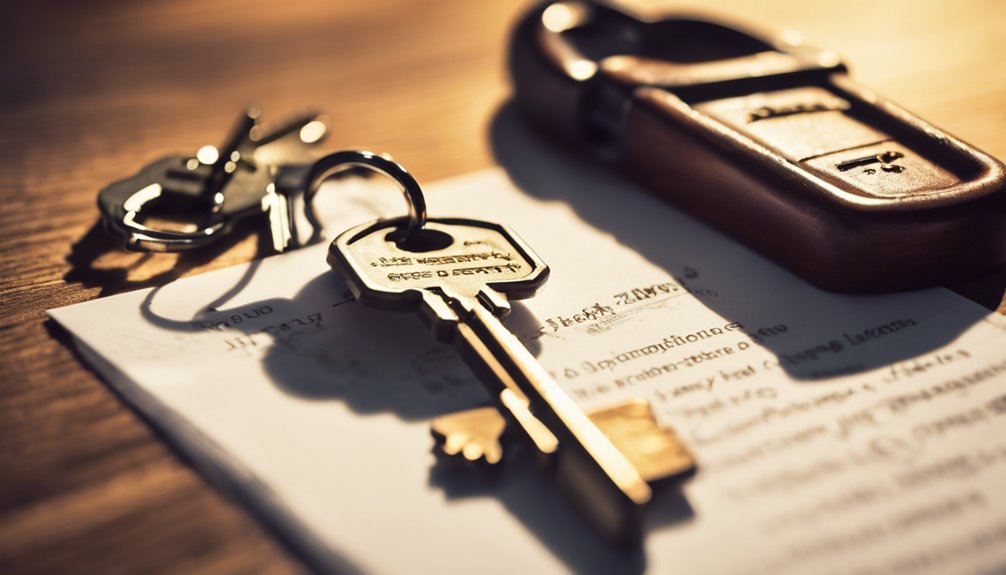
To effectively protect your keys, it's vital to understand the risks associated with unauthorized duplication and the importance of adhering to established protocols. By recognizing these risks, you can take proactive measures to guarantee your keys remain secure.
- Unauthorized duplication can lead to severe security breaches.
- Compliance with university regulations helps mitigate potential financial penalties.
- Diligent key management promotes accountability and security.
In Ohio, specific legal restrictions govern key duplication, especially in university settings. Ohio Revised Code Section 3345.13 prohibits the unauthorized making of keys for state-supported colleges. Violators face fines ranging from $50 to $150, emphasizing the need for compliance with university policies and procedures.
Each institution may have tailored regulations requiring authorization and record maintenance for key duplication.
Returning keys to the proper office and reporting lost or stolen keys immediately are essential to maintaining security. Failure to comply with these procedures could lead to significant repercussions, including financial liability for replacement costs.
Additionally, unauthorized duplication might violate lease agreements, resulting in additional penalties.
Utilizing patented key systems provides an added layer of security. These systems restrict duplication to authorized locksmiths and maintain audit trails to track any key duplication activities.
Ultimately, by understanding and adhering to established key management protocols, you not only uphold security standards but also protect your privacy and freedom.
Make informed decisions about your keys, and take responsibility for their safe usage to avoid unnecessary consequences.
Best Practices for Key Duplication

When it comes to key duplication, understanding your institution's policies is essential to guarantee compliance with regulations.
Additionally, if you lose a key, report it immediately to prevent unauthorized duplication and potential security breaches.
Understand Institutional Policies
Although institutions often establish key control policies to enhance security, understanding their specific regulations is essential for compliant key duplication practices.
Familiarize yourself with the following key aspects to ascertain adherence:
- No duplication allowed for "Do Not Duplicate" or "Restricted" keys without authorization.
- Written consent from senior officials is required for new keys or rekeying procedures.
- Only original keys should be duplicated, avoiding copies of copies.
Grasping the enforcement of these rules protects not just you but also the broader institution.
Non-compliance can result in severe consequences, including job loss and potential legal action.
Institutions clearly define ownership and management of their keys, emphasizing the importance of authorized access to maintain safety and security.
Report Lost Keys Immediately
Immediate action is essential when keys go missing. You need to act quickly to protect both privacy and security. Here's a straightforward guide to guarantee you cover all bases:
| Action | Description | Responsibility |
|---|---|---|
| Notify Command | Alert your shift commander or security manager | All staff |
| Search Initiation | Activate a special response team if necessary | Security manager |
| Inform Staff | Make everyone aware and vigilant | Relevant team members |
| Last Holder Contact | Reach out to the individual who last had the key | Assigned personnel |
| Lockdown If Needed | Secure the facility if there's a significant risk | Security manager |
You should review accountability documents to trace the key's last known location. Conduct interviews with team members to gather information, and require a detailed report from the responsible person. If you can't recover the key, consider corrective measures like re-keying or updating access systems. Finally, updating your key control policies guarantees future security lapses will be minimized. Taking immediate and organized steps is the best way to maintain freedom in access while guaranteeing protection.
Frequently Asked Questions
Can I Duplicate My Own House Keys Without Permission?
Yes, you can duplicate your own house keys without permission. There aren't any laws prohibiting you from doing so.
Most locksmiths and hardware stores offer key duplication services, even for standard keys. Just keep in mind that some keys labeled "do not duplicate" can still be copied, but stores might refuse due to their policies.
Always protect your keys and consider using quality locks to maintain your home's security.
Are There Exceptions for Emergency Key Duplication Situations?
Yes, there are exceptions for emergency key duplication situations.
In urgent circumstances, like emergency repairs, authorized personnel can gain immediate access without usual restrictions.
You'll need to present valid identification, and campus police or the facilities director can facilitate this process.
However, you must adhere to the verification protocols in place, as the integrity of the system remains a priority even in emergencies.
Always consult the appropriate authorities for guidance.
What Should I Do if I Find a Lost Key?
If you find a lost key, act quickly and responsibly. Instead of keeping it, report it to the designated authority, like the University Police Office.
You'll need to sign a register upon returning it, ensuring proper documentation. The key's rightful return reinforces security and privacy.
Neglecting this responsibility could lead to unauthorized access and potential penalties. By returning it promptly, you maintain trust and contribute to a secure environment for everyone.
How Can I Ensure My Keys Are Secure From Duplication?
To guarantee your keys are secure from duplication, consider using restricted key systems or high-security locks that employ complex designs and proprietary key blanks.
Limit key copies to trusted individuals and always respect keys with "Do Not Duplicate" markings.
Stay vigilant about who's access to your keys, and regularly assess whether duplication is necessary.
Finally, consult trusted locksmiths for expert advice on enhancing your key security.
So, you think you can just waltz around duplicating keys without a care? Well, think again!
In Ohio, unauthorized key use can land you in hot water. If caught, you might face fines, jail time, or a permanent criminal record.
The severity of the penalty can depend on various factors, including the property's value and victim details. It's not just a light slap on the wrist; it's serious business!
Conclusion
In Ohio, understanding key duplication laws is like having a sturdy lock on your front door—crucial for safeguarding what matters most. By following these regulations and implementing best practices, you not only protect your property but also foster trust within your community. Just as a key guarantees access to a safe haven, adhering to legal frameworks secures your institution's integrity. Prioritizing compliance is essential; neglecting these rules could lead to unauthorized access and potential security breaches.


